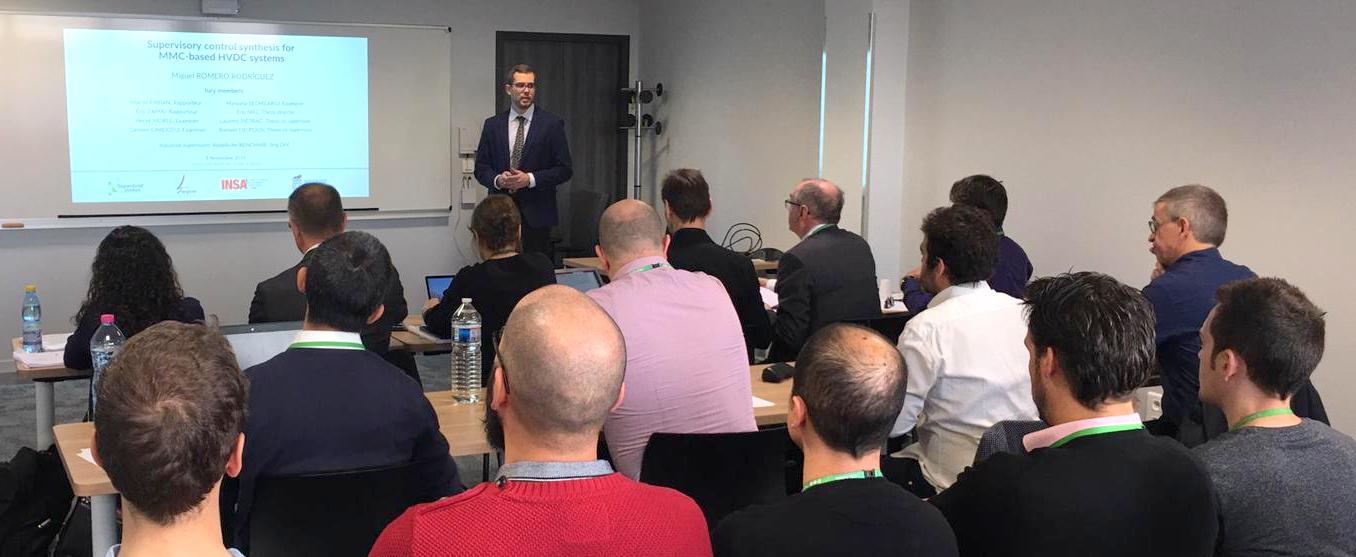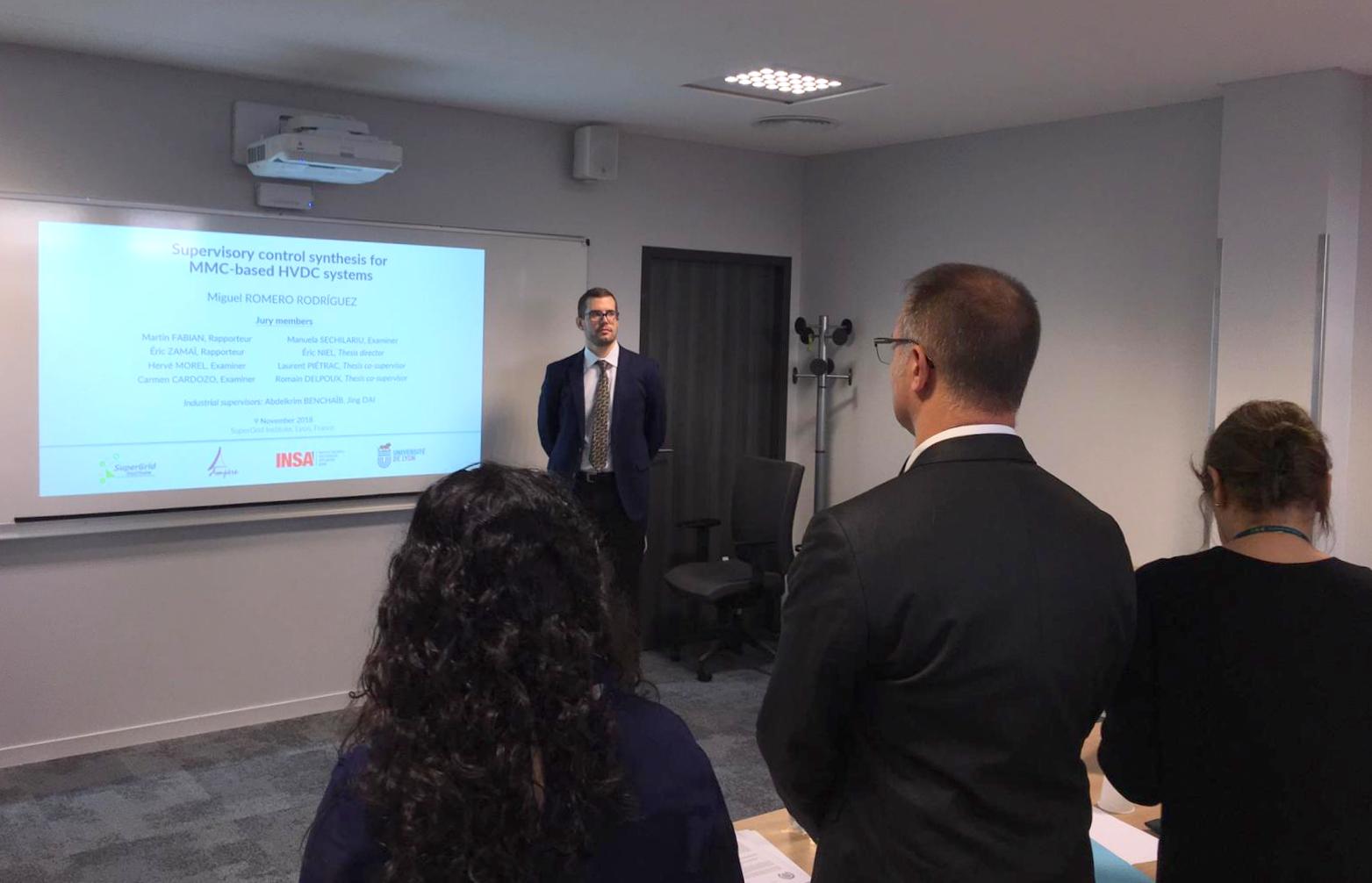PhD Miguel ROMERO RODRIGUEZ
“Supervisory control synthesis for MMC-based HVDC systems”

Abstract
The growth of renewable energy production is changing the future of power transmission systems. In recent years, High-Voltage Direct Current (HVDC) technologies based on Modular Multilevel Converters (MMC) are embraced by industry and academia as a solution for the efficient integration of renewable energies into electrical grids. However, this type of technology introduces new challenges in the way power transmission systems are controlled and operated, as faster and more complex control strategies will be needed in a domain which nowadays relies heavily on human decision. In this context, Discrete Event Systems (DES) modeling and Supervisory Control Theory (SCT) are powerful tools for the synthesis of supervisors ensuring that the system to be controlled respects a set of behavioral specifications, imposed by the designer, within its physical limitations.
This work proposes a method for the full development, from conception to implementation, of the supervisory control of a multi-terminal HVDC (MT-HVDC) system. A functional analysis on the considered system has been done so as to identify the main components and operational modes of the grid. Then, the proposed solution is based on the discrete-event modeling of the continuous-time behavior of the components in the system. From there, SCT concepts are applied so as to obtain a hierarchical control architecture taking into account the priority of some control actions that should be treated at the local level. Furthermore, the obtained discrete controllers present a mode-switching structure in order to realize mode management during the operation of the MT-HVDC grid. Finally, a method for the implementation of the obtained controllers in widespread power system simulation software is proposed. The whole work has been validated through the simulation of a case study, involving the mode management of a 3-terminal bipolar MT-HVDC system.
Thesis director: Eric Niel



